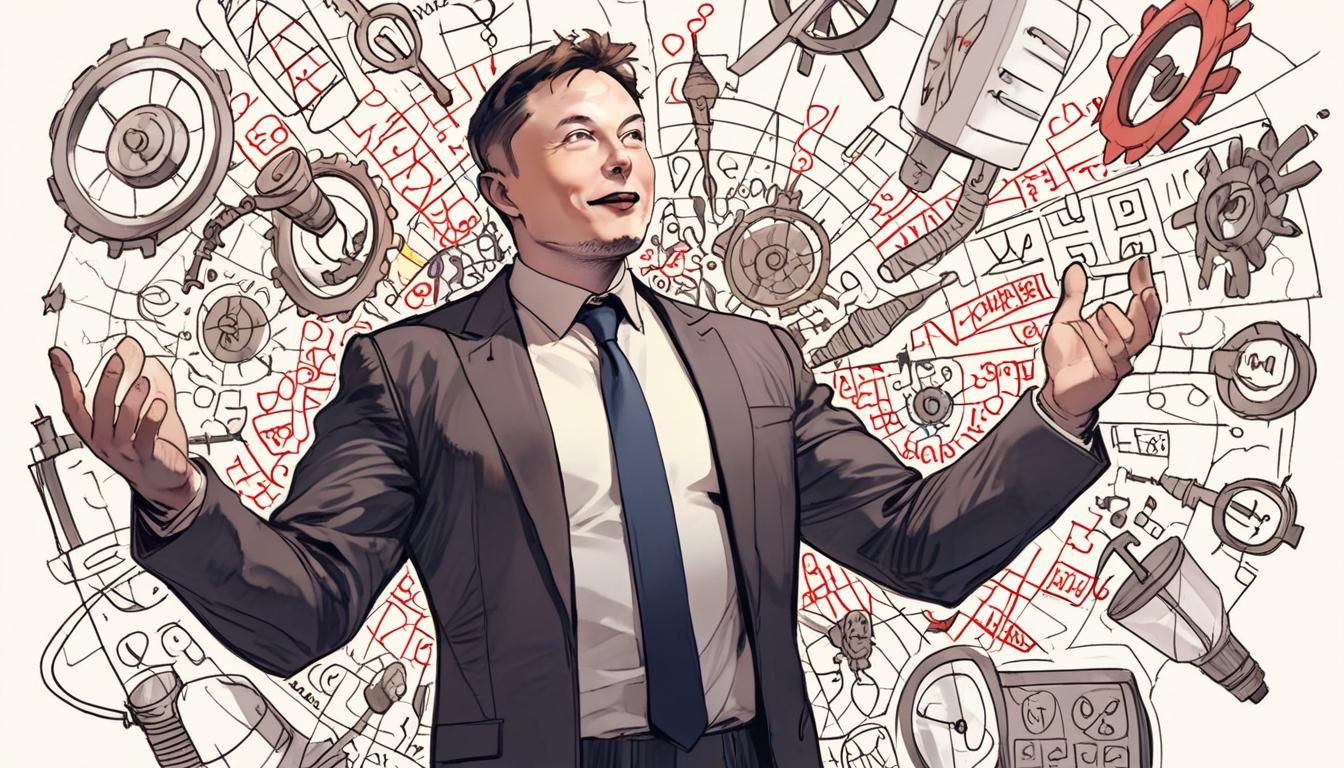Billionaire entrepreneur Elon Musk remains a Fellow of the Royal Society following a crisis meeting on Monday evening, yet the pressure to expel him from the prestigious scientific institution continues to mount. Since his election as a fellow in 2018, Musk has faced increasing scrutiny due to allegations of breaching the Society's code of conduct.
The Royal Society, established in 1660 and known for its historical members like Isaac Newton and Charles Darwin, gathered this week to address public outcry within the scientific community regarding Musk's recent behaviour and statements. The concerns centre around Musk's perceived shift from scientific innovation to involvement in right-wing politics and his engagement with controversial figures and topics.
An open letter authored by Stephen Curry, an emeritus professor of structural biology at Imperial College London, garnered signatures from over 3,400 scientists calling for Musk's removal. The letter specifically pointed to Musk's propagation of conspiracy theories, his derogatory comments about Dr Anthony Fauci, and the labelling of Labour MP Jess Phillips as a "rape genocide apologist" as serious breaches of the Royal Society's code. Curry's letter further expressed concern about Musk's role within the Trump administration’s new Department of Government Efficiency (DOGE), claiming it negatively impacts the climate for scientific research in the United States.
In light of these allegations, the Royal Society released a statement following the meeting, emphasising the need to advocate for science amid "radical cutbacks in research funding" and ongoing misinformation campaigns. Although the statement did not specify Musk, it reinforced the importance of scientific integrity and the welfare of scientists facing job threats due to funding issues.
Notably, two prominent scientists, Dr Dorothy Bishop from Oxford University and Prof Andrew Millar of the University of Edinburgh, have already resigned from the Royal Society in protest against Musk's continued membership. Bishop remarked last November that she felt more comfortable dissociating from an institution that includes Musk among its ranks, describing him as akin to a "Bond villain". Millar’s resignation in February was similarly motivated by concerns regarding Musk's promotion of disinformation and his perceived attacks on evidence-based policies.
The recent controversy also ignited a heated exchange between Musk and Geoffrey Hinton, an influential figure in artificial intelligence. Hinton publicly advocated for Musk’s expulsion from the Royal Society, asserting, "Not because he peddles conspiracy theories and makes Nazi salutes, but because of the huge damage he is doing to scientific institutions in the US."
In response to the calls for his removal, Musk downplayed the significance of awards and memberships, stating, "Only craven, insecure fools care about awards and memberships. History is the actual judge, always and forever." He emphasised his willingness to rectify any mistakes, soliciting specifics on actions requiring correction.
The intricate dynamics between scientific credibility, political involvement, and public dialogue continue to unfold as the Royal Society navigates this unprecedented situation. The outcome of the ongoing discussions and growing calls for Musk's expulsion remains to be seen, with the Society’s code of conduct stipulating that fellows must uphold the institution's reputation in their public statements.
Source: Noah Wire Services
